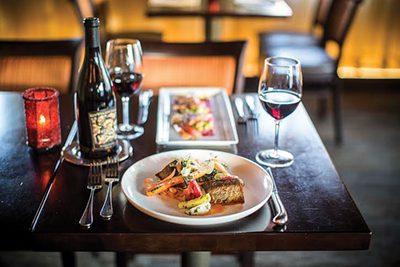
WASHINGTON (Global Newswire) — Apparently, the Restaurant Revitalization Fund has become a popular attraction for restaurant owners across the country.
U.S. Small Business Administration Administrator Isabella Casillas Guzman announced earlier this week more than 147,000 applications for some $29 billion in relief funds had been received for the RRF.
Congress passed the $28.6 billion RRF as part of the American Rescue Plan, which was then signed into law by President Joe Biden.
Guzman’s announcement builds on an earlier announcement of the rapid deployment of RRF funding as the SBA continues to quickly distribute relief to approved applicants on a rolling basis. To date, a total of $2.7 billion of relief funds have been distributed to 21,000 restaurants since the Restaurant Revitalization Fund opened May 3.
“Through the Restaurant Revitalization Fund, SBA is helping thousands of restaurants and other food and beverage businesses across the country get the help they desperately need to recover and rebuild from this pandemic,” Guzman said. “The numbers show that we’ve been particularly successful at reaching the smallest restaurants and underserved communities that have struggled to access relief. These businesses are the pillars of our nation’s neighborhoods and communities. We are making progress, but we have much more work to do as we continue reaching our underserved entrepreneurs.
In addition to a $5 billion set-aside established by Congress for applicants with gross receipts not more than $500,000, Guzman created two additional funding allocations to ensure the smallest of the small restaurants and other eating establishments such as food trucks and carts get the aid needed:
- $500 million for applicants with 2019 gross receipts less than $50,000.
- $4 billion for applicants with 2019 gross receipts between $500,000 and $1,500,000.
In the first days of the RRF program, after weeks of targeted outreach that included 600 local and national informational events, SBA has received:
- 13,114 applications from businesses with under $50,000 in pre-pandemic revenue requesting $330 million in funds
- 100,410 applications from businesses with under $500,000 in annual pre-pandemic revenue requesting $8.14 billion in funds
- 61,535 applicants from businesses with $500,000 – $1,500,000 in annual pre-pandemic revenue requesting $15.1 billion in funds
Because SBA still has potential funding available for eligible establishments with 2019 annual revenue of not more than $50,000, it will keep the application portal open. Eligible establishments that meet this revenue standard are encouraged to apply through SBA-recognized point-of-sale vendors or directly via the SBA online application portal.
Overall, the RRF program has received more than 266,000 applications representing over $65 billion in requested funds. Nearly half of the overall submitted applications came from women, veterans, and socially and economically disadvantaged business owners. During the first week of the program, SBA has received applications from:
- 76,183 women business owners
- 6,093 veteran business owners
- 42,284 economically and socially disadvantaged individuals
Restaurants, bars, and other small businesses offering on-site food and beverages are the core of our neighborhoods and propel economic activity on our Main Streets. As among the first businesses to close and likely the last to reopen, restaurants and bars have suffered severely during the pandemic.
“Awarding grants within a week of restaurants and bars applying demonstrates SBA’s steadfast commitment to getting people the help they need as quickly and efficiently as possible,” said Erika Polmar, Executive Director of the Independent Restaurant Coalition. “Restaurants and bars across the country are devastated after the last 16 months of this pandemic and, until this week, have been unable to access the meaningful relief needed to stay afloat. This is what so many businesses have been waiting for – independent restaurants and bars are grateful for the Biden Administration’s efforts to quickly and carefully deliver relief to the people who need it most.”
Mohamed Attia, managing director of the Street Vendotr Project of the Urban Justice Center, believes the RRF will “play a crucial role in the recovery of our smallest businesses, street vendors.”
“Street vendors come from communities in New York City and across the country that have been hit hard by the pandemic and are facing infinite challenges to recover,” Attia said. “RRF offers an opportunity for many businesses and individuals who have been excluded from the past relief efforts due to the lack of documentation or immigration status by accepting applications from individuals using ITIN to run their business, many of whom are street vendors. We are looking forward to seeing the impact of it on our communities’ recovery.”





